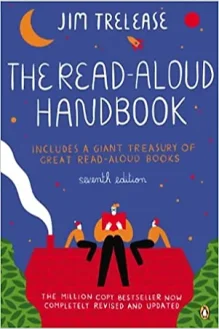Struggling Reader Solutions: What to Do When Reading Doesn’t Click

Stephanie Tsapakis
|
Published on Apr 27, 2021 · 2 min read


Stephanie Tsapakis
|
Published on Apr 27, 2021 · 2 min read

Welcome Back, Super Parent! In resources page of this blog series, we focused on practical tips for parents to use at home to help their struggling reader with sounding out words. In part two, we will focus on the single most important thing you can do to support your child at home, and you might be surprised at how easy it is....
Nearly every parent we speak with about their struggling reader has felt desperate at some point for guidance on how to help their child at home. Even if you are not a teacher, speech pathologist, or literacy expert, you can still help your child at home!
So what is the single most important thing you can do to help your child learn to read? Read to them!
Yup. It's that simple.
Scientific research has a plethora of evidence supporting the importance of reading aloud to your child. Some of the things you can teach your child just by reading to them are:
letter recognition (letter names and sounds)
understanding the relationship between print and spoken word
story elements (beginning, middle, and end)
reading comprehension (understanding what you read)
Tip: Rhyming, alliteration (she sells seashells), onomatopoeias (POW!), and similes (they blew through like tornados) are great to use with any activity. For example, if you are eating ice cream with your child, you can incorporate these literacy elements into your conversations.

Get the Most out of Your Read-Aloud:
Now that we have touched on the importance of reading-aloud to your children, let's discuss how to get the most out of your time together! Here are some additional things you can do to engage your child, keep their attention, and ensure they are learning as much as possible:
Get into it! Make sure you are using lots of inflection in your voice, and changing your voice for the different characters. Speak louder or softer to keep your child's attention and build suspense.
Take Breaks. After a few pages, take a break and talk about what you read with your child. Discuss which characters are their favorite, how characters might be feeling, and make predictions about what could happen next. Be sure to do this after you are done reading as well!
Make mind movies. You can help your child better understand what is being read by encouraging them to make a movie in their mind about what is being read. You can model this by sharing what your mind movie looks like along the way during your breaks. You can even have the doodle about what is happening as you read.
Enhance vocabulary. Reading with your child is a great way to teach them new words! If you come across some words with meanings you think your child may not know, you can talk about them during one of your breaks. Try not to interrupt the flow or imagery of the story by stopping mid-sentence to discuss a word meaning. Try to find a natural place to pause and discuss new words and mind movies. Later, you can give incentives to have your child try to use them in sentences or during their day-to-day routines.
You got this, parents - and we are always here to help!
-The LD Expert
Looking for personalized support for your child's learning journey?
Our tutoring and dyslexia intervention services are tailored to students with learning differences. Whether it's reading, writing, or other challenges, our team offers one-on-one guidance.
Start with a consultation!Stay updated with our latest blog posts.
Cart